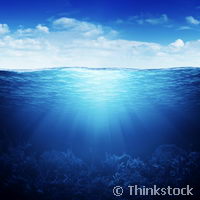EU-project develops state of the art of marine ecosystem modelling
Phytoplankton and zooplankton biomass are expected to decrease by 6 % and 11 % respectively by the end of century due to climate change. This is just one of the conclusions drawn from the work of the EU-funded MEECE ('Marine Ecosystem Evolution in a Changing Environment) project that was recently published in the Global Change Biology Journal. The MEECE project was completed in 2013 but evidently its conclusions continue to draw attention from the research community. The MEECE team, led by Plymouth Marine Laboratory, used predictive models to explore the impacts of both climate drivers such as acidification and temperature, and human induced drivers like fishing, invasive species and pollution on marine ecosystems. The project succeeded in advancing the state of the art of marine ecosystem modelling and providing tools to help support decision making. The team achieved this by developing a library of modelling tools and a generic model-coupler (FABM), making an important step towards integrated end-to-end modelling tools which include a range of feedbacks between drivers and ecosystems from both physiological and population scale processes. These modelling tools were used to investigate the response of European regional seas ecosystems to climate change, direct anthropogenic perturbations and to combinations. The results are complex and variable from region to region. For example the ecosystems of enclosed basins such as the Adriatic, Black and Baltic Sea are highly responsive to wind stress and eutrophication. In contrast, the ecosystems of shelf seas with connection to open ocean (for example the North-East Atlantic and Biscay) are responsive to changes in the nutrient supply from the open ocean. MEECE findings on phytoplankton and zooplankton reduction, drawn by research led by Azti-Tecnalia and recently published in the Global Change Biology Journal, show that different regions will be affected in different ways. In the seas in Central and Southern Europe, higher thermal stratification of the ocean water layers and, consequently, a lower presence of nutrients for phytoplankton to grow, will reduce primary production; and in the Baltic, Barents and Black Sea phytoplankton production is expected to increase. Guillem Chust of Azti-Tecnalia, leader of the scientific work and main author of the paper, noted, 'In the ocean regions that lose more phytoplankton and zooplankton biomass, that is, with a negative amplification, fish biomass may also decrease dramatically, especially pelagic species (i.e. those living the water column, excluding the seabed).' Chust continued, 'Climate regulation will also be affected negatively by the primary and secondary production decrease globally because, as there will be less phytoplankton, absorption of CO2 from the atmosphere by the oceans will be lower, as plankton is responsible for half of the planet's photosynthetic activity. This in turn will reduce the ocean's capacity to regulate the climate'. The MEECE project comprised 22 European partners. The MEECE model atlas is still available online showing information from ecosystem models. The numerical models presented on the atlas offer mathematical descriptions of the real world, allowing users to explore how the world works and to make projection of how the future may evolve.For more information, please visit: MEECE http://www.meece.eu/ Project factsheet:
Countries
United Kingdom



